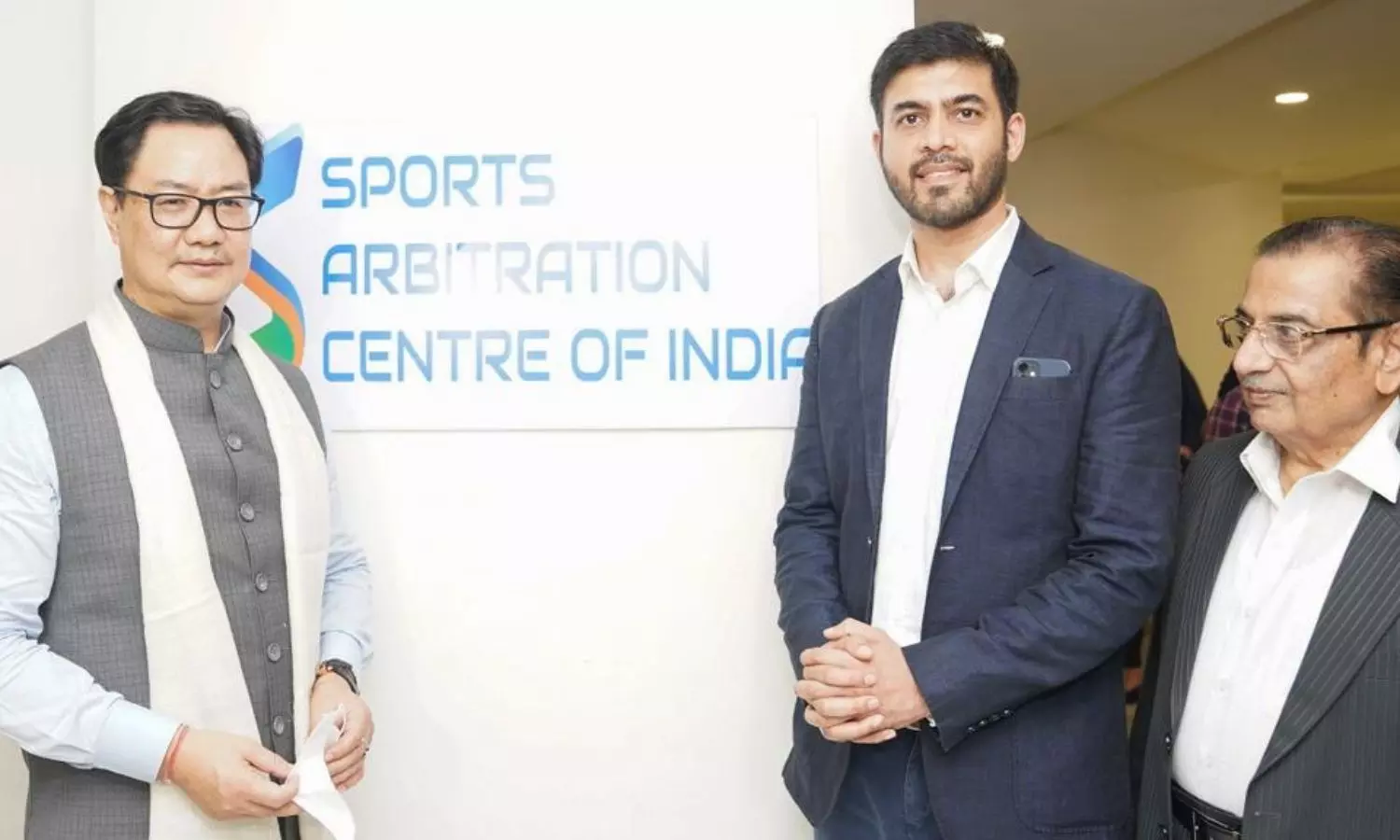Law in Sports
Sports Arbitration Centre of India: A timely implementation in the right direction
A milestone in India's path to effective sport dispute resolution mechanisms which shall hopefully flourish in the years to come

Kiren Rijiju inaugurates sports arbitration centre in Gujarat
There is no doubt that in the coming years, the Indian sporting sector will see a major boom in its functioning. This does not just cater to one domain of sports but functions with aspects such as talent acquisition, sports medicine, media and telecommunication and most importantly legal regulations. The legal side of sports need to be seen from a holistic perspective that can encompass more than just implementing laws and adhering to them. There needs to be adequate systems in place that bring speedy justice and satisfaction to those who require it. This is exactly what the Sports Arbitration Centre of India can do. Inaugurated on 26th September, 2021, the SACI aims to be a pioneer in resolving sporting disputes in India for the years to come.
Back in September this year, Kiren Rijiju was called to inaugurate the centre in Gujarat. Amongst the many things that he said that day, the foremost was the consequences of having such an arbitration center. "The SACI will have far reaching impact for the sports sector of India by creating a reputation and establishing credibility for itself through the provision to settle disputes and other issues and concerns of the sports sector in a fast, transparent and very accountable manner."
Access to Justice
The foremost issue that the SACI wishes to resolve is the procedure adopted to gain access to justice for sportspersons in India. It becomes evident that India has never historically had sports jurisprudence to govern and support its athletes. Cases that go to various courts across India often take months and years on end to be resolved.
The issue of case jurisdiction is also a critical aspect which in itself is the first problem for athletes. Common questions that arise relate to where and whom has to be approached to effectively resolve issues?
History does not favour sportspersons in India who have approached the courts to seek justice or resolution of their disputes. Dutee Chand and Narsingh Yadav were two sportspersons who had agonising waits due to their involvement in disputes which could not be deliberated upon in a clear manner. It became apparent that both of them would have a long wait before the judiciary in order to determine if they could compete. Regardless of the verdict, all sportspersons must have some hope that their issues will be effectively sought over by competent authorities.
Manika Batra's case is another present day scenario which is evidently a blot on Indian sports. Despite the Delhi High Court steeping in to resolve the matter, there seems to be no end in sight as the hearing for evidentiary matters has been postponed till December. As a result, the player will continue to wait it out and see whether there is actually some hope regarding her allegations or whether the 'investigation' will continue to hamper her prospects of competing without any distraction. More often than not, it is the mental distraction of having pending legal issues ongoing along with media attention that causes problems to the careers of the athletes. The effective solution is speedier access to justice which the SACI can help resolve.
Time Factor
Another aspect which the SACI will be able to address is the time taken to meet the needs of sportspersons. For any active athlete, time lost during their career and opportunities taken away from competing in events wreaks havoc on their career prospects in sports. Injuries can always be regarded as 'part of the game' but a delay in delivering justice can never be excusable. The Indian judicial process does not seem to have understood that judges cannot deliberate upon every matter that comes before them in the shortest possible time.
With all due respect, sportspersons require justice in as little time as possible. With the SACI in the picture, every aspect of deliberation will be sought after and looked at in the shortest possible time. Arbitration is generally regarded for its speedy and effective resolution methods so combining it with sports makes for a deadly combination.
Specialists at Work
One of the highlights of the set up in the SACI is the use of specialists to arbitrate over disputes. It is not yet quite clear about the working mechanisms and hierarchy that is to be followed but the use of specialised arbitrators is a brilliant move. Transtadia, the company that is collaborating with the SACI, has stated that they will be providing a list of all the arbitrators who can be looked up and approached by disputing parties. The company will be providing the necessary facilities and forum, that will be governed under International sports law regulations. As such, this system seems to be effective and transparent given that there is a need for specialist arbitrators at work. It remains to be seen how this works out in the future, but it does seem to be an effective idea that can be put to good use where required.
